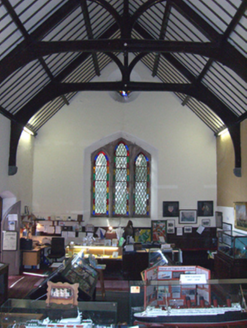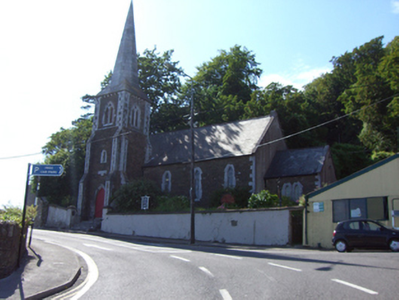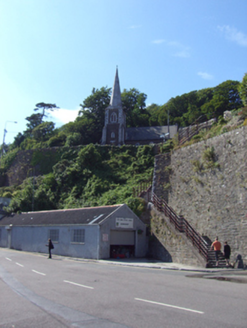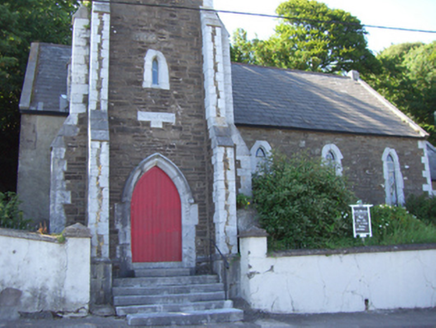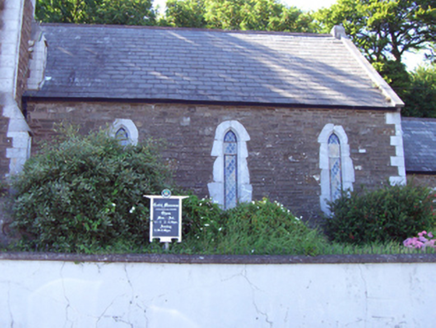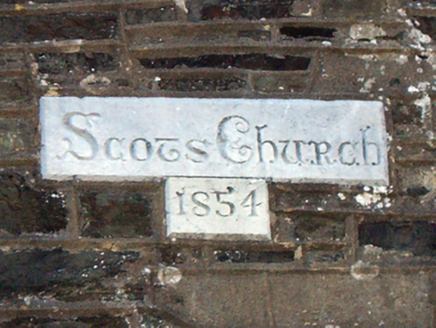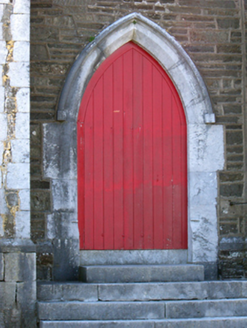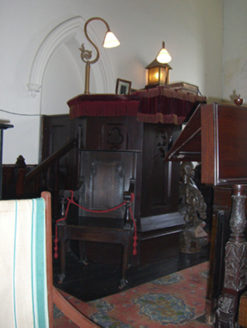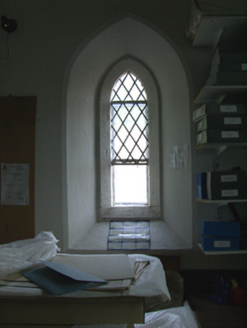Survey Data
Reg No
20828127
Rating
Regional
Categories of Special Interest
Architectural, Artistic, Historical, Scientific, Social, Technical
Previous Name
Scots Church
Original Use
Church/chapel
In Use As
Museum/gallery
Date
1850 - 1855
Coordinates
179418, 66328
Date Recorded
10/07/2007
Date Updated
--/--/--
Description
Freestanding former Presbyterian church, built 1851-5; dated 1854, designed by Henry Hill (c.1806-87). Comprising three-bay nave, single-bay vestry to east and three-stage, stepped tower having octagonal limestone spire with consoles to south elevation. Pitched slate roof with limestone copings. Snecked sandstone walls having limestone quoins and rendered walls to west elevation. Limestone date plaque to south elevation. Sandstone buttresses with limestone quoins to tower. Limestone string course to tower, third stage. Lancet quarry glazed stained glass windows having limestone block-and-start surrounds. Double lancet quarry glazed windows to vestry, south elevation. Quatrefoil quarry glazed stained glass window to west elevation over triple lancet quarry glazed stained glass windows with limestone hood moulding, both having limestone surrounds. Lancet quarry glazed window to tower, second stage. Trefoil-headed opening over double lancet windows with timber fittings, limestone surround and hood moulding to tower, third stage. Pointed arch opening having limestone surround and hood moulding over timber battened door. Flight of limestone steps to entrance. Ornate scissors brace and tie beam ceiling with limestone corbels supporting collars to interior. Red terracotta tiles to interior floors. Carved timber pulpit with trefoil motifs to east wall. Pointed arch opening with timber battened door leading to vestry, east elevation. Square-profile rendered piers with caps and boundary walls with render copings.
Appraisal
Prominently sited, this former Presbyterian church is a fine example of mid nineteenth century Hard Gothic architecture. Its coherent decorative scheme culminates in the ornate tower, with limestone spire, which emphasises its Gothic theme. The sandstone walls and limestone dressings create a textural and chromatic variation, which adds further interest to the structure. Internally, the church retains its tiled floor and timber pulpit which adds important context to the site.
